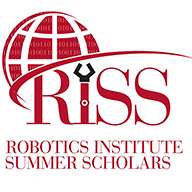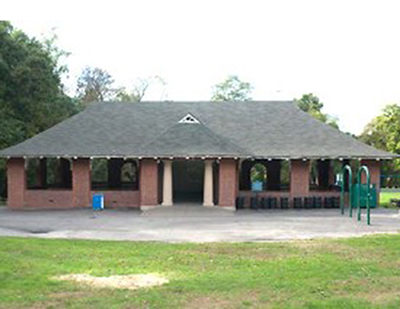Carnegie Mellon University
Soft-matter Artificial Muscle by Electrochemical Surface Oxidation of Liquid Metal
Natural muscles, a result of more than 500 millions years of evolution, are elegant machines that generate force and motion electrochemically. The brief history of robotics does not have the luxury of millions of years to reverse-engineer many aspects of life. The development of artificial muscles therefore seeks to build more muscle-like actuators for robots. [...]
Radiation Source Localization using a Gamma-ray Camera
Radiation source localization is a common and critical task across applications such as nuclear facility decommissioning, radioactive disaster response, and security. Traditional count-based sensors (e.g. Geiger counters) infer range to the source based on the observed number of gamma photons, expected source strength, and assumed intermediate attenuation from the environment. In cluttered 3D settings, such [...]
Carnegie Mellon University
Improving Imitation Learning through Efficient Expert Querying
Learning from demonstration is an intuitive approach to encoding complex behaviors in autonomous agents. Learners have shown success in challenging tasks like autonomous driving, aerial obstacle avoidance, and information gathering, through observation and mimicry alone. State of the art algorithms like Dataset Aggregation (DAgger) have made significant advances over traditional behavior cloning, demonstrating strong theoretical [...]
Carnegie Mellon University
Provably Optimal Design of a Brain-Computer Interface
Abstract: Brain-computer interfaces are in the process of moving from the laboratory to the clinic. These devices act by reading neural activity and using it to directly control a device, such as a cursor on a computer screen. Over the past two decades, much attention has been devoted to the decoding problem: how should recorded [...]
RI Summer Scholars Poster Session Today at 3:30pm in the NSH Perlis Atrium
Come celebrate the contributions of the cohort members, mentors, program partners, and volunteers that make the program possible. Refreshments will be served.
Failure Is an Option: How the Severity of Robot Errors Affects Human-Robot Interactions
Abstract: Just as humans are imperfect, even the best of robots will eventually fail at performing a task. The likelihood of failure increases as robots expand their roles in our lives. Although task failure is a common problem in robotics and human-robot interaction (HRI), there has been little research investigating human tolerance to said failures, [...]
Carnegie Mellon University
Extensions of the Principal Fiber Bundle Model for Locomoting Robots
Abstract: Our goal is to establish a rigorous formulation for modeling the locomotion of a broad class of robotic systems. Recent research has identifi ed a number of systems with the structure of a principal fiber bundle. This framework has led to a number of tools for analysis and motion planning applicable to various robotic [...]
2018 Robotics Institute Picnic
Attention: This events time was changed. The original time was 3pm to 7pm, the event is now occurring from 2pm to 6pm. If you had exported the event to add it to your calendar, please be sure to update the time in your calendar appropriately. Private Event: By Invitation Only SOCIALIZE, EAT, DRINK & [...]
Imaging the World One Photon at a Time
Abstract: The heart of a camera and one of the pillars for computer vision is the digital photodetector, a device that forms images by collecting billions of photons traveling through the physical world and into the lens of a camera. While the photodetectors used by cellphones or professional DSLR cameras are designed to aggregate as [...]
Carnegie Mellon University
Lesson Learned from Two Decades of Robotics Development and Thoughts on Where We Go from Here
Abstract: In this talk, Herman Herman will offer various lessons learned from developing various robots for the last 2 decades at the National Robotics Engineering Center. He will also offer his perspective on the future of autonomous robots in various industries, including self-driving cars, material handling and consumer robotics. Bio: Dr. Herman Herman is the [...]









